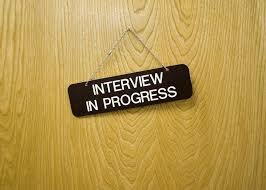 There are lots of articles around on interviewing skills, including mine here and here. But what should you be doing to prepare for the interview before you even walk through the door? Here are my top five tips on preparing for PR job interviews:
There are lots of articles around on interviewing skills, including mine here and here. But what should you be doing to prepare for the interview before you even walk through the door? Here are my top five tips on preparing for PR job interviews:
1) Read the job spec or advert carefully. Make sure you are fully aware what the role entails. If the job description asks for good attention to detail, you are likely to be asked about that skill during the interview. Interviewers often use competency questions – questions which ask about past experiences to try and predict future behaviour – in order to determine if you have the right skills, temperament and cultural fit for their company. Competency questions often begin “can you give me an example of when…” or “tell me about a time that you…” For every skill or competency listed as a requirement, prepare an example of relevant experience to give the interviewer.
2) Read your CV. You know your own CV, right? You should, but it’s amazing how many people manage to contradict what they have written on their CV during an interview. Refresh your memory by reading through your CV the day before and make a note of any big achievements so that you’re prepared to talk through them with the interviewer.
3) Do your research. The company’s website should be your first port of call, but don’t stop there. Check our their social media channels. Do a search on PR Week to see if there are any recent industry articles on them. If you know the name of your interviewer Google them, and look them up on LinkedIn. Find out what media coverage they’ve received recently for their brands or clients so that you can mention it. Look up their competitors
4) Read the papers. Common questions in PR interviews include “what news stories have caught your eye recently?” and “tell me about a PR campaign you’ve seen in the last six months which impressed you/didn’t impress you”. In order to answer both of those questions you need to be fully aware of what’s been in the news. Don’t limit yourself to one source of news – graduates in particular are guilty of only reading The Guardian (because their lecturers do), the Metro and the Evening Standard (because they’re free) and often whichever paper their parents read and is lying around at home. You need to be able to talk about a broad range of papers – both broadsheet and tabloid – and a variety of broadcast, online and radio news outlets.
5) Prepare some questions. Interviewers ALWAYS ask if you have any questions. The worst possible reply to that is “no”. It demonstrates a lack of interest in the company and role and leaves the interviewer with a very poor impression of your ability to think on your feet. Before you go to the interview, make a list of five or six questions you’d like to ask about the company or position and have them written down. When the interviewer asks if you have any questions you should be able to pick at least one relevant one. If they’ve already covered all the things you had planned to ask you can at least point to your list and show that you had prepared appropriately.




